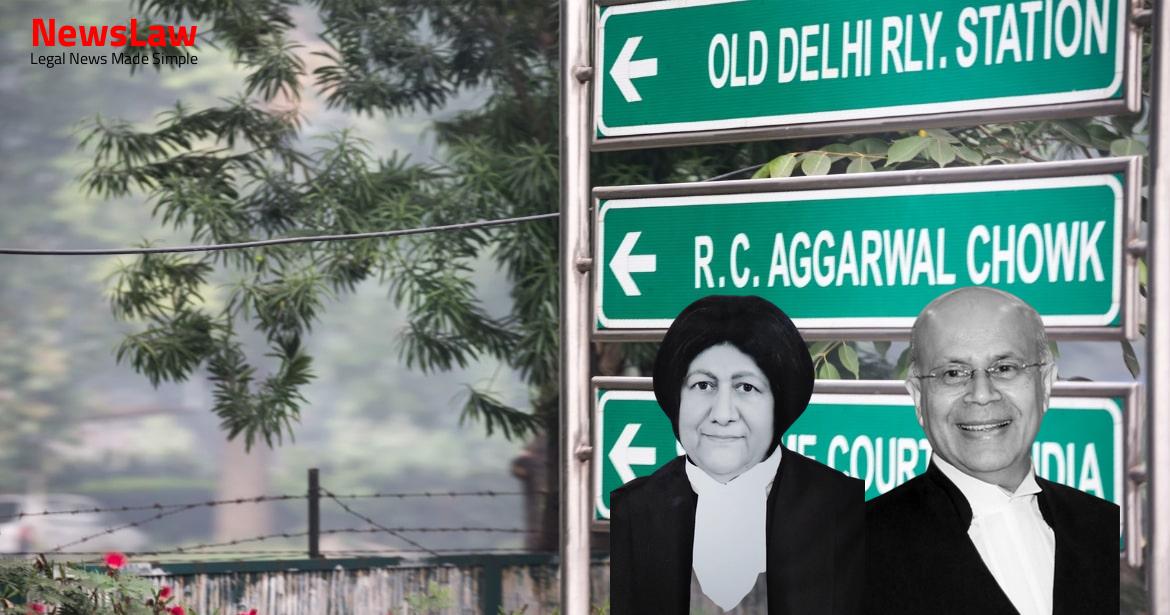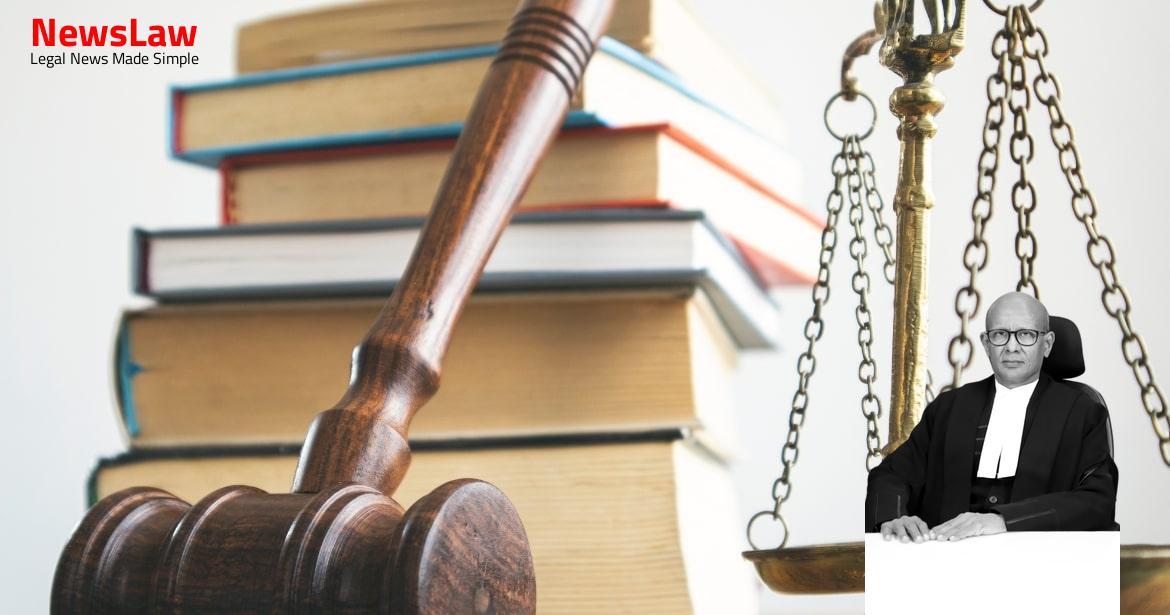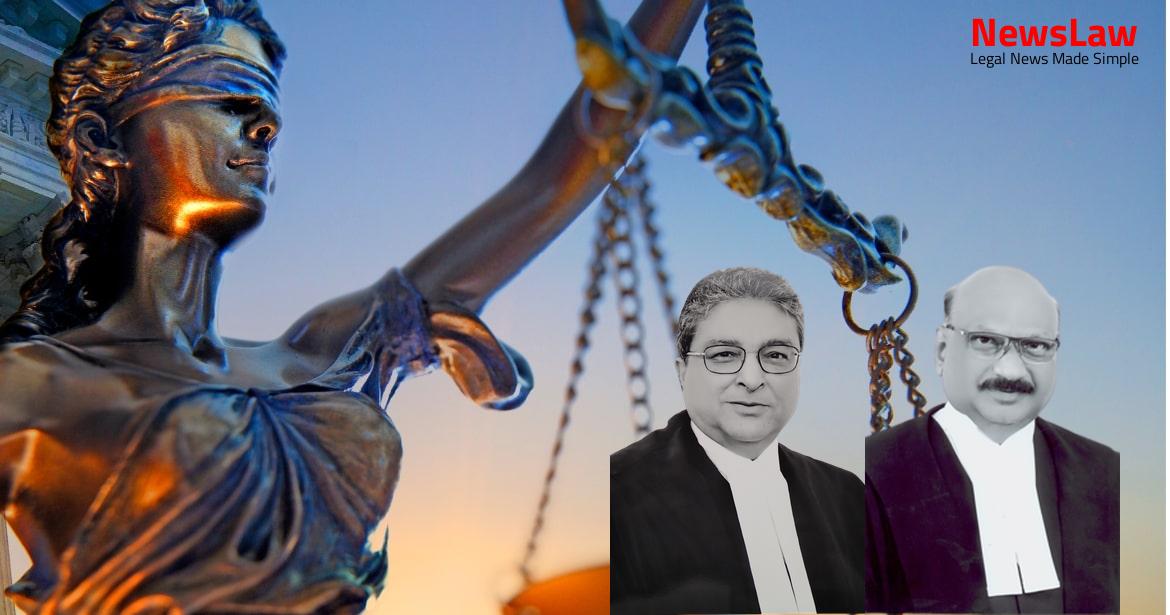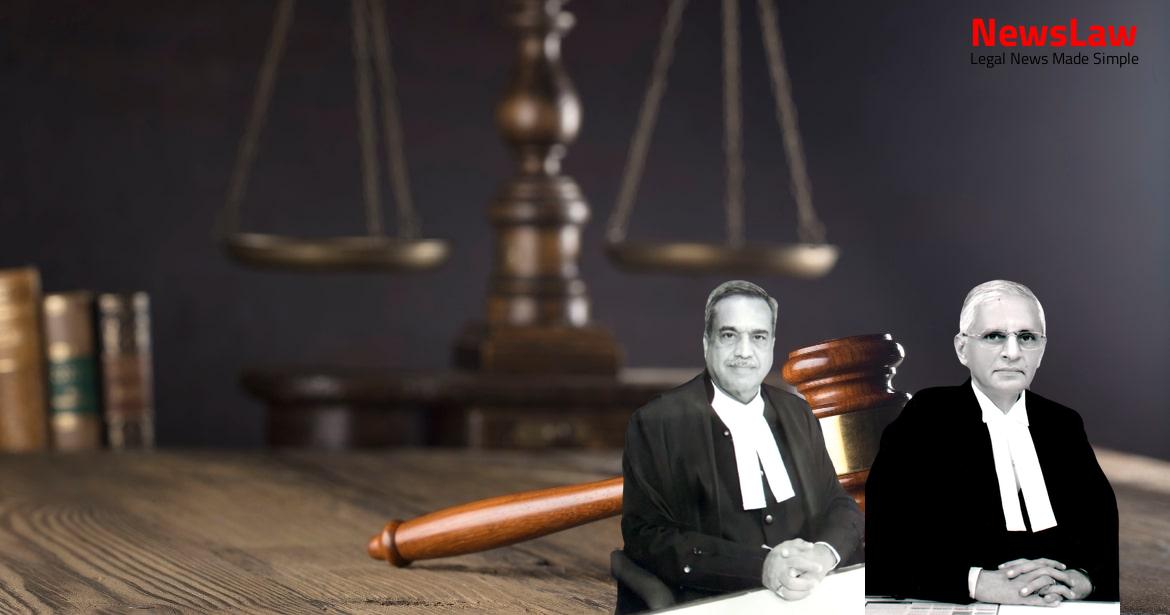In a significant judgement by the Supreme Court of India, the conviction and sentence of the appellants have been upheld in an illegal gratification case involving a Village Administrative Officer and accused Village Assistants. The case sheds light on corruption practices and the pursuit of justice. Stay tuned for insights into this legal battle.
Facts
- P.W.2 desired transfer of electric connection for subsidy purposes.
- Appellants were village assistants in the village administrative officer’s office.
- The village administrative officer demanded Rs.600 for signing necessary papers.
- Appellants received money on the officer’s instructions, believing it to be for land tax arrears.
- Money was handed over to accused no.2 and then to accused no.3 before completing paperwork.
- Appellants were apprehended by trap officials after money exchange.
- Sanction for prosecution was proven by P.W.1.
- Accused no.3 filled up transfer form after the money exchange.
- Appellants acquitted of specific charges under Act and IPC.
- P.W.2 lodged complaint against the village administrative officer for the illegal gratification demand.
- Defence claim of money being towards arrears of land tax was falsified.
- No proof of demand and acceptance by appellants, cannot be convicted based on assumptions.
Also Read: Land Dispute Resolution: Supreme Court Ruling on Specific Performance
Arguments
- It is unlikely that a demand of Rs.600/- would be made to facilitate a subsidy of Rs.625/-
- The petitioner ARG_PETITIONER contended that the demand was arbitrary
- The conviction and sentence of the appellants were upheld based on circumstantial evidence, even in the absence of direct evidence for demand and acceptance.
- The demand for illegal gratification was made by the village administrative officer alone.
- The circumstantial evidence strongly suggests the involvement of the appellants in the design for obtaining illegal gratification.
- The appellants were deemed to be in league with the village administrative officer according to the submissions made by the learned counsel for the State.
Also Read: Landmark Judgment: Setting Precedent for Contractual Compliance
Analysis
- Absence of specific statement by P.W.2 and trap witness attributing demand only to village administrative officer is not beneficial to the appellants.
- Acquittal of the appellants under Section 7 of the Act due to lack of proof of motive for accepting undue advantage.
- Taking of false defense is an aggravating factor against the appellants.
- Defense of receiving money for advance tax or arrears of land tax is belied by evidence.
- In Virendranath case, venue for illegal gratification payment was at a restaurant.
- Existence of doubt benefits A-2 in the case.
- Presumption drawn against the appellants despite their claim of bonafide belief in receiving the money.
- No evidence of habitual conduct by A-2 as a go-between for bribe acceptance.
- Prosecution evidence shows a well-planned system involving both accused in collecting money.
- Decision in T. Shankar Prasad case where money was handed over to co-accused supports prosecution’s case against the appellants.
- Section 20 of the Act focuses on the acceptance or obtaining of undue advantage by a public servant.
- The provision applies when a public servant receives an undue advantage for themselves or another person.
- The Act specifies that this acceptance of undue advantage constitutes an offense.
- The section aims to prevent public servants from engaging in corrupt practices.
- In the case of State of U.P. v. Dr G.K. Ghosh, the court observed that in cases of offences involving demanding and accepting illegal gratification, the prosecution’s oral evidence can be accepted even if trap witnesses are found to be not independent or turn hostile.
- The court may rely on the prosecution’s version along with official witnesses’ testimonies if the circumstances warrant it.
- Circumstantial evidence, coupled with consistent guilt and inconsistent innocence of the accused, can further support a conviction.
- The appeals in this case have been dismissed, and the appellants are directed to surrender immediately to serve the remaining sentence.
- A similar plea regarding receiving money as advance tax was rejected and affirmed by the Court in A. Abdul Kaffar v. State of Kerala.
Case Title: GURUVIAH Vs. STATE REP. BY INSPECTOR OF POLICE
Case Number: Crl.A. No.-001208-001208 / 2019



